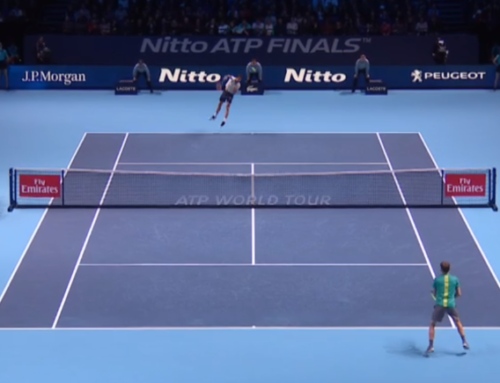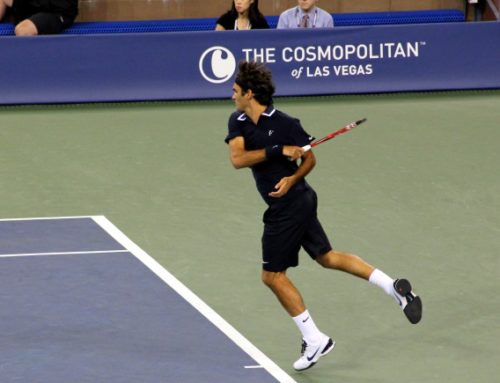One of the things I run into most frequently when coaching is players who have developed serviceable, if not downright good, technique and have no idea what to do with it. In extreme cases it is the equivalent of handing the keys of a Formula 1 car over to an 18 year old kid who just got off their learner’s permit. With that in mind today we’re going to embark on how to go about building a singles game plan. The goal here is to go into some overarching principles and the ideas behind them, and then hopefully provide some concepts by which you can take the particulars of your own game (specifically your own strengths and weaknesses) and overlay that onto these principles to give you a solid foundation to work from when playing singles. And of course to do that we must begin and the most fundamental concept behind tennis strategy: the cross court groundstroke.
The Importance Of Not Making Mistakes
I was coaching a college match years ago in which my player (whom for the sake of the story we shall call Amy) was playing a weaker opponent at #2 singles. I had largely left her alone, spending time instead on the matches we expected to be much closer. Imagine my surprise when I came over to check on Amy and found out she was losing 4-1 in the first set! She was in a mild state of panic, so I watched for merely a couple of minutes and then caught her for some quick advice. “Five balls in play every point,” I said to her. “You hit five balls in, then the point starts.” So she did, and was off the court in quick fashion after that winning 11 of the next 12 games to win 6-4, 6-1. You see Amy had forgotten the core concept behind winning a tennis match: to win the point you have to be the last person to hit a ball in. She was overhitting, pressing too hard and changing direction too often – and in the process was throwing the match away to a much weaker opponent who was all too happy to get away with putting one or two mediocre shots in each rally and win the point.
And the truth of it is that most matches, even at the professional level, are decided not by scorching winners but rather by errors. And unless you are playing at the pinnacle of the game I can virtually guarantee you that in any kind of evenly matched contest errors are the deciding factor. So the heart of any game plan we put together for singles must lie in consistency. We must find a way to minimize our mistakes while still allowing ourselves the ability to take advantage of opportunities when they present themselves. In fact one of our chief goals at all times should be to play ourselves into good position, while allowing our opponent the most difficult shot we can to stay in the point.
Glen Hill2013-04-09T17:11:07+00:00

